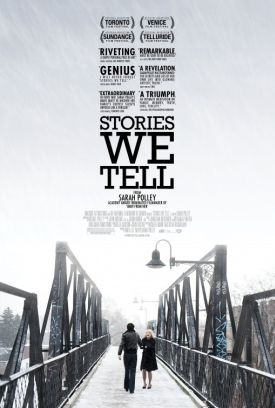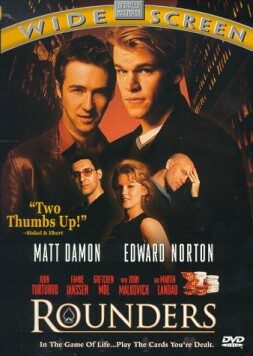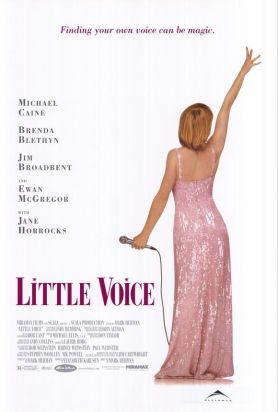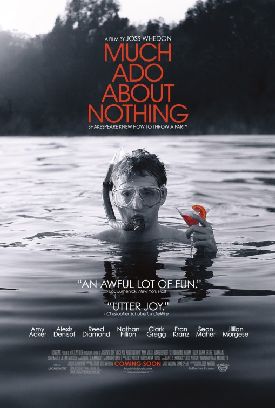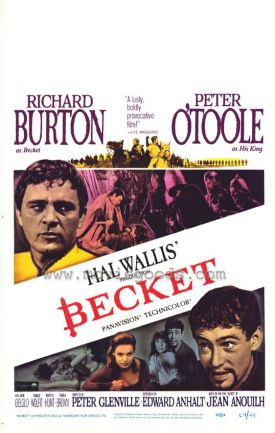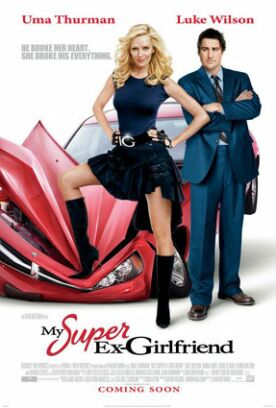Stories We Tell
When it was announced recently that Kate Winslet was pregnant by her new husband, Ned Rocknroll [sic], a columnist for the London Daily Telegraph wrote a piece suggesting that — how to put this delicately? — she should be ashamed to be having three children by three different fathers. “What her daughter, in particular, makes of Winslet’s revolving-door relationships can only be guessed at. But to the outside world, Kate, it just looks tacky.” Or not. For immediately, she was attacked — the writer, I mean, not Miss Winslet — from all sides, even by another writer for the Telegraph, for her outrageously antediluvian attitude towards female sexual morality. The shame that the original writer thought Miss Winslet should have felt but didn’t is now itself shameful — the relic of an even more shameful double standard that somehow lingers on long after (as the enlightened suppose) the sexual revolution should have put an end to it forever.
So, you may ask, what’s new? Well, it’s something useful to bear in mind — I mean both that oddly undead double standard and the shame inversion that liberal-minded people tend to fall into about it — when you try to account for the unmistakable air of self-congratulation about Sarah Polley’s exploration into her own and her family’s history in Stories We Tell — which, if nothing else, casts an interesting light backwards on her Take this Waltz of last year, a movie about adultery. Unlike that fictional feature starring Michelle Williams and Seth Rogen, this is a quasi-documentary with a mixture of old and new Super-8 footage of her parents in their early adulthood and of actors portraying them at the same period. This is intercut with interviews in the present day with various family members and friends who are invited to contribute their memories of her mother, Diane Polley — an actress who died of cancer in 1990, when Sarah was only eleven years old.
People will get cross at me if I give away too much, but the matter at issue is ultimately one of Diane’s sexual behavior (or misbehavior) back in the 1970s, at about the time Sarah was conceived. That only emerges a long way into the film, and it must change the way we look back on the earlier part — which is dominated by rather less titillating reminiscences — and in somewhat the same way that a child who discovers in adulthood a parent she didn’t know about must look back on her childhood in a different way. The voiceover narration begins by telling us, in the words of the Canadian novelist Margaret Atwood, that “When you’re in the middle of a story, it isn’t a story at all,” and Miss Polley sets out, ostensibly, on an anatomization of story-telling itself, though most of this turns out to be unnecessary mystification about “the truth” which masks a much simpler truth that the family’s progressive amour propre cannot allow to remain simple.
As the film is so far philosophical, however, I wish it had also had something to tell us about the “We” in the title. In one sense the “We” is Sarah’s family, since it is a family story she has to tell, and one that she has only learned, apparently, in adulthood. Insofar as it a story about her parentage, it is one of intense interest inside the family, which consists of four siblings, by two different fathers, plus the father of two of them, whom Sarah grew up thinking was her father as well, and two possible alternatives as her biological father. But of course if the “We” was limited to family members, there would be no movie, nor any reason for a movie. The “We” must therefore be assumed to be generalized, and Miss Polley’s family history to be taken as somehow paradigmatic for lots of other families — not to mention, since families aren’t mentioned in the title, even those without families or any family stories to tell.
This is disingenuous. A story like this one is inseparable from its family context and depends on that context for its meaning. The story is a family secret which she is revealing to the world, so that it is not only a story of Sarah Polley’s search for the truth of who her biological father is but also a story of Sarah Polley’s revealing a family secret to the world at large. The film pretends that it is all about the first story and that there is really no story to speak of at all in connection with the second. The whole family as presented to us on camera registers the appropriate reaction to the news Sarah has uncovered, as none of them knew about it before either, but though the movie bumps up against the question of the family’s reaction to Sarah’s going public with it, this never seems to amount to much. They are all obliging her by speaking to her camera about it, after all, aren’t they?
Clearly, the exposure of what would once have been a shameful secret about the long-dead mother they all claim to have loved is no big deal to them. But then that’s the real story, isn’t it? The story is that there is no story, or none that anyone should be getting excited or upset about. The Polley family is so enlightened and advanced in its thinking, so far above any temptation to feel ashamed of Diane Polley’s long-ago adultery (or adulteries) that the possibility never even comes up. There is just this hint, mentioned en passant by Sarah’s sister Jo, about the effect on the family of what they (in particular, the women) now know about their late mother’s behavior: “Oh, we all got divorced.” Ha ha. So, by the way, did Diane, but long before the events narrated in the rest of the film. Very late in its narration we are shown newspaper headlines from the scandal we learn she caused back in 1967: “Adulteress loses children,” reads the headline. That’s harsh. At least there was no question of anything like that happening twelve years later.
What there was instead was a near abortion. Although Michael Polley, the man Sarah calls “Dad” throughout the film, apparently knew nothing of his wife’s relationships with other men, he had accepted her doubts about her ability to care for a fifth child. Now, in old age and filled in by Sarah’s investigations into what she was getting up to back in 1978, he takes an amazingly philosophical approach to the whole matter, telling Sarah that he thinks her mother fell in love not with him but with the character he was portraying on the Toronto stage — Mick in Harold Pinter’s The Caretaker — at the time they met. He also tells Sarah’s camera that her mother had decided on the way to the abortion clinic that she couldn’t go through with it. “How close we were to you not existing,” he adds. “It’s almost enough to make you an anti-abortionist.” Almost. Oddly, however, Sarah’s reaction to this news — unlike that to the news of her mother’s sexual behavior and whom else it might or might not have involved — was apparently not worth the digital video space it would have taken to record it. Perhaps she was ashamed to say.
Discover more from James Bowman
Subscribe to get the latest posts to your email.

